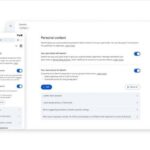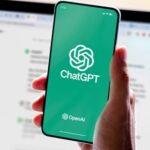Imagine pouring your heart out to ChatGPT. Maybe you are seeking advice, comfort, or just a clever answer. A few days later, you type a phrase from that chat into Google. To your shock, the private conversation pops up in the search results. This isn’t a scene from a tech thriller. This really happened in 2025.
Let’s walk through this saga—how it started, what went wrong, the fallout, and, most importantly, what you can do to keep your digital life private.
The Beginning: How ChatGPT Chats Ended Up on Google
It started with good intentions.
OpenAI, the company behind ChatGPT, wanted users to easily share interesting conversations with others.
They created a feature called “Shared Chats.” This allowed you to generate a public link to a chat. You could send it to friends, coworkers, or anyone you wanted. It was like sharing a Google Doc—you had control, at least in theory.
But there was one small checkbox that changed everything:
“Make this chat discoverable.”
If you ticked it, your chat could be indexed by search engines. The goal was to help people discover useful conversations across the web. In reality, this made thousands of private, and sometimes very sensitive, conversations publicly searchable on Google.
A Privacy Crisis Unveiled
Journalists and researchers, curious about this new feature, tried a simple trick:
They searched Google for “site:chatgpt.com/share” and uncovered a flood of ChatGPT conversations—over 4,500 at first count, maybe many more.
Some of these chats were mundane. Many were not.
They included discussions about:
- Mental health struggles
- Personal relationships
- Job applications
- Business strategies
- Trauma and addiction
- Confidential work documents
OpenAI had promised no identifying information would be attached. But what if someone mentioned their name, email, or workplace in the chat? Those details were now one Google search away.
The Fallout: Public and Corporate Reaction
People were stunned.
“I thought my chats were private!” was a common response.
When the news broke, social media was full of users frantically checking if their conversations had leaked.
OpenAI scrambled to explain. They said the “discoverable” option was a short-lived experiment to make helpful conversations easy to find. But many people simply hadn’t understood what ticking that box meant.
Meanwhile, privacy experts and advocates sounded the alarm.
They warned this incident showed how easy it is for sensitive data to be exposed through “opt-in” features users might not fully grasp.
OpenAI’s Response: Pulling the Plug
Faced with a swelling privacy uproar, OpenAI acted quickly.
They removed the “discoverable” checkbox entirely.
Shared chats are now, by default, only accessible to people with the direct link. They are not indexed by Google or other search engines anymore.
OpenAI also began working with Google and other search engines to remove the already-indexed shared chats.
But here’s an uncomfortable truth:
If your chat was indexed before the removal, it might still appear in search results for some time (thanks to cached pages and slow updates in search engine databases).
Why Did This Happen? (An E-E-A-T Perspective)
Experience
Most people using ChatGPT rely on it for brainstorming and troubleshooting, treating conversations as at least semi-private. Few expect things they type to be broadcast to the Internet.
This incident is a real-world experience that highlights how user interfaces and tiny checkboxes can have huge consequences.
Expertise
Cybersecurity experts say this type of incident is avoidable. Industry best practices suggest any content marked as “shared” should have a clear warning if it may be indexed by Google.
Web developers know that adding a “noindex” tag keeps pages out of search results. OpenAI’s failure to include this tag led directly to the exposure.
Authoritativeness
Renowned technology sites and privacy watchdogs amplified the story.
Major outlets like Fast Company, Mashable, TechRadar, and Business Insider investigated and confirmed what had happened.
Experts pointed out that even anonymized conversations can include details that reveal someone’s identity.
Trustworthiness
OpenAI’s rapid removal of the feature earned them some trust back.
However, the lack of clear communication about what “discoverable” meant has hurt user confidence.
Lessons Learned: How to Protect Your AI Conversations
- Always check link settings before sharing.
Any option marked “public,” “discoverable,” or “shareable” could mean Google can see it too. - Never include sensitive information in AI chats you share.
Avoid writing your name, email, workplace, financial information, or secrets. - Review your privacy dashboard.
OpenAI now has tools to view and delete all shared links from your account. - Remember: Deleting the chat from ChatGPT doesn’t remove it from Google right away.
It may linger online until Google refreshes its index. - If you find your sensitive data online:
Request removal via Google’s content removal tools. And delete any public shared links in your ChatGPT settings.
For more about securing your online activity, see guides on online privacy, and advice from reputable security sites.
Why This Matters: The Bigger Picture
This incident is more than a technical hiccup.
It’s a warning to anyone using AI tools: if you share, someone might find it—maybe much sooner than you think.
It’s also a lesson to tech companies: Transparency, privacy, and clear communication matter. One poorly-worded checkbox can upend trust and cause confusion.
Story Highlights
- OpenAI’s “Make this chat discoverable” feature caused thousands of conversations to become visible in Google searches.
- Some included deeply personal information, though by default ChatGPT does not publish conversations online.
- The incident was revealed by curious researchers with a simple Google search trick.
- OpenAI responded by killing the feature and is working with search engines to scrub indexed chats.
- Users learned the hard way to never share anything online they wouldn’t want the world to see.
FAQs
Q: Will shared ChatGPT conversations show up in Google in the future?
A: No, OpenAI has removed the feature. But old public links may linger as cached pages until Google updates its index.
Q: Is my ChatGPT data safe now?
A: Your personal chats are private by default. Only chats you actively shared and marked “discoverable” were ever at risk. Double-check your sharing settings in your ChatGPT account.
Q: What can I do to remove a chat from Google?
A: Delete the shared link from your ChatGPT dashboard, then use Google’s content removal tool to hasten its disappearance from search results.
Q: How can I keep my AI conversations private?
A: Don’t share sensitive details, review link settings before sharing, and treat any “shared” document as potentially public—always.
Final Thoughts
The ChatGPT Google leak was a “short-lived experiment” with big consequences. It’s a cautionary tale for anyone sharing anything online—AI chatbots included.
Technology is powerful, but privacy remains your responsibility. If in doubt, keep it to yourself—or double-check those settings first.











